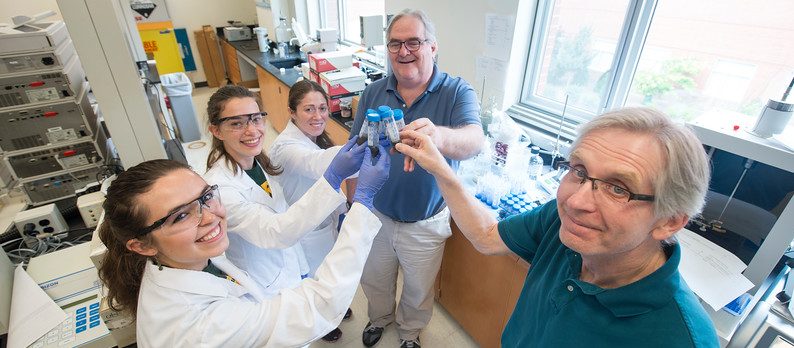Written by: Chau Pham
I am participating in the 2018 summer OSCAR program as a member of the chemistry team at the Potomac Science Center. My research goal is to quantify the concentrations of endocrine disruptive compounds (EDCs) and pharmaceuticals and personal care products (PPCPs) in Gunston Cove. By measuring the present of these chemicals in the watershed, we can further examine the effect of bioaccumulation and the water quality after treatment.
The chemistry team worked with water, zooplankton, filters, sediments, clams, submerged aquatic vegetation, and three species of fish, which were collected by the ecology team. Water samples were processed differently from other samples. Firstly, the collected water was filtered through 2 layers of glass microfiber filter GF/F and GF/D. Then, we used 2 different methods to perform solid phase extraction: HLB, to obtain EDCs, and AXCX to collect PPCPs. The QuEChERS method was used for other samples preparation. Finally, all of the samples were transferred in auto sampler vial in order to load into HPLC/MS/MS, which is a powerful and sensitive instrument to identify and

quantify chemical concentrations in nanograms. The chemistry team was divided into 2 groups to analyze data for EDCs and PPCPs. I along with 2 other members have been working with LabSolution software to analyze the data for EDCs drug schedule. We found different species of sunscreen agents, NSAID, as well as herbicides in samples from Gunston Cove watershed suggesting that wastewater effluent and storm water run-off contribute are sources for pollution and bioaccumulation.
Through summer OSCAR program, not only did I gain valuable skills, I also learned tremendous knowledge about current research at George Mason University. My mentors and the PEREC team have worked hard to arrange brown bag seminar every Friday where I can learn about interesting and exciting research, jobs, and projects on environmental sciences.



